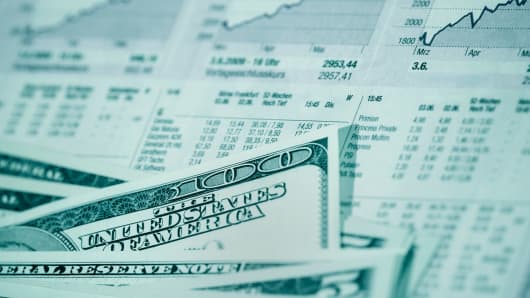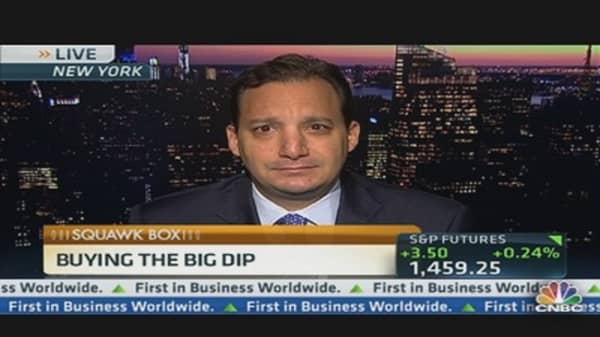The most dangerous thing about ignoring the plaintive pessimist is that he is, from time to time, correct. Government did not cure the fiscal cliff. It wrought a political solution to take politically appetizing actions and eschew all of the less appetizing. Unfortunately these not-taken, deficit-reducing steps have been delayed, but deficit spending has not diminished.
"Could the government default briefly in March? Yes. Could a government shutdown occur when the continuing spending resolution expires on March 27? Unlikely, but you can't rule it out," my friend Greg Valliere said. "Could lawmakers fail to reach an agreement in late February on the spending sequester? Of course. The markets will just have to live with this—dysfunction is the norm here; that's not going to change."
(Read More: Morici: Self-Inflicted Wounds Threaten Jobs.)
When the issues are momentous and dysfunction is the norm, how does one best invest?
Advising Clients
A new client, fearful of the fiscal cliff, told us he had sold most of his stocks in late November. He allowed that it had cost him some capital gains taxes and a few performance points of upside, but he assured us that he had been sleeping better.
One of the toughest client counseling problems is when the client's projected living needs (even at a bare minimum) argue for more risk than may be comfortable or appropriate. Determining the most prudent investment strategy always involves a certain amount of art. Each of our portfolios is managed individually, but we strongly advocate the most prudent strategy. Getting in or getting out of markets over short term periods is not something we believe can be successful over any longer period. Benjamin Graham said that a key element to successful investing was the patience necessary to allow the perceived value to prove itself.
The Next Decade
Today, investors who follow Benjamin Graham's discipline must adopt a longer investment horizon which includes an inherent faith that Corporate America will continue to expand and succeed. We are among the believers, but Fed intervention and congressional gamesmanship continue to justify our cautious and defensive approach.
As our crystal ball gathers dust (yes, we have one), we choose to invest in stocks based on a couple of very basic premises.
We do not believe the world will end. We believe that democracy and capitalism will survive in the United States. We believe that the world population will continue to grow and that productivity and innovation will yield unimaginable benefits and prosperity. We expect economic growth to recover. We expect that while share prices will be volatile through many short-term periods, successively higher valuations will be seen over time. Finally, there will always be risk.
Navigating the next few months and years through an unpredictable maelstrom, we look to invest in companies that boast solid balance sheets, strong earnings, and diverse revenue streams. We intend to hold those shares for as long as practicable.
Michael K. Farr is President and majority owner of Farr, Miller & Washington, LLC. He is Chairman of the Investment Committee and is responsible for overseeing the day to day activities of the firm. Prior to starting FM&W, he was a Principal with Alex Brown & Sons.
Mr. Farr is a paid Contributor for CNBC television and has appeared on numerous broadcasts and has been quoted in global publications. He is a member of the Economic Club of Washington, DC, National Association for Business Economics, The World Presidents' Organization, and The Washington Association of Money Managers. He is the author of "A Million Is Not Enough," and "The Arrogance Cycle."




